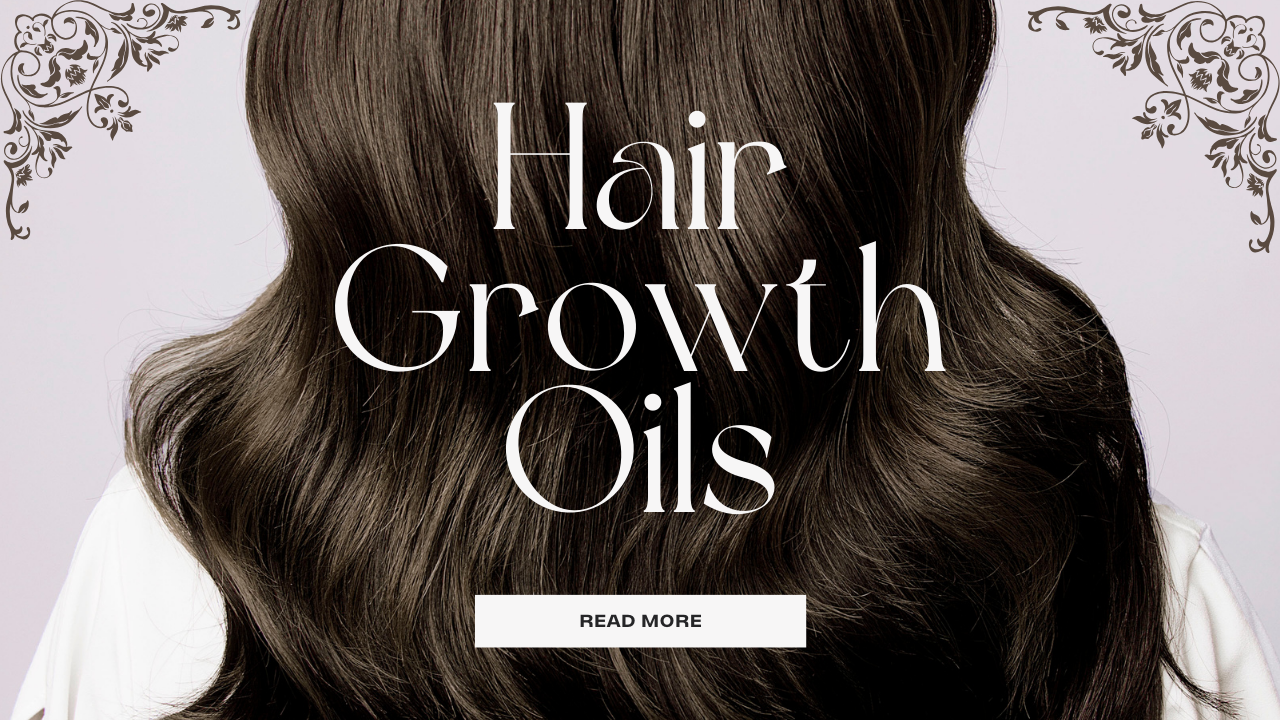Hair Growth Oils
Unlock Your Rapunzel Potential: A Guide to Hair Growth Oils
Hair Growth Oils: The desire for long, luscious hair is universal. Hair growth oils have emerged as popular contenders in this search, promising to nourish, strengthen, and stimulate hair growth. But with a wide range of options available, navigating this world can be difficult. Fear not, fellow hair enthusiasts! This guide will reveal the secrets to using hair growth oils effectively, transforming your hair journey.
Step 1: Choosing Your Champion
There are many types of hair growth oils, each with unique properties. Below is a summary of some preferred options:
- Rosemary Oil: Renowned for promoting scalp circulation, rosemary oil is a natural stimulant for hair growth.
- Peppermint Oil: This invigorating oil tingles the scalp, potentially increasing blood flow and stimulating growth.
- Coconut Oil: A treasure trove of moisture, coconut oil deeply nourishes the hair, preventing breakage that can hinder growth.
- Jojoba Oil: Mimicking the scalp’s natural sebum, jojoba oil balances oil production and provides a healthy environment for hair growth.
Step 2: Preparing for Success
Before diving into the oil, make sure your hair is a clean slate. Wash your hair with a mild shampoo and do not use conditioner for this treatment. Wet hair allows for better oil absorption, so towel dry your hair until it’s damp.
Step 3: Oiling Magic
Spread some oil between your hands.
Using your fingers, gently massage the oil into your scalp, focusing on areas where hair growth seems to be stunted. If your hair is oily then apply the remaining oil on the roots of the hair, avoiding the roots.
Step 4: Incorporate the Good
For deeper penetration and better benefits, consider wrapping your hair in a hot towel or shower cap. Let the oil work its magic for at least 30 minutes or overnight for a more intensive treatment.
Step 5: Big Rinse
Oil can be difficult to wash off. You may need to shampoo twice to remove all residue. Choose clarifying shampoo for deep cleaning.
Step 6: Consistency is Key
For best results include hair growth oil treatment in your routine 2-3 times a week. Consistency is important to experience cumulative benefits and see progress in hair growth.
Here are some best hair growth oils linked below:
- Rosemary Hair Growth Oil
- Handcraft Peppermint Essential Oil
- Organic Forest 100% Chemical Free Pure Cold Pressed Coconut Oil
- Cliganic Organic Jojoba Oil
Bonus tip: Do a patch test on the inside of your arm before applying the oil to your scalp to check for allergic reactions.
By following these steps and choosing the right oil for your hair type, you will be on your way to achieving your hair growth goals. Remember, patience is key – hair growth takes time. But with dedication and this guide, you’ll be one step closer to making your long hair dreams come true!
In Conclusion:
Hair Growth Oils: Finally, hair growth oils offer a natural approach to nourishing your scalp and potentially stimulating hair growth. By following these steps – choosing the right oil, preparing your hair, applying strategically, rinsing thoroughly, and maintaining consistency – you can harness the power of these oils to unlock your hair’s full potential. Remember, a healthy scalp is the foundation for strong, vibrant hair growth. So, switch to the oil, enjoy a scalp massage and witness the transformation of your hair!
Hair Growth Oils: Answers to Your Burning Questions
The world of hair growth oils can arouse a lot of curiosity. Here are some common questions you may have, along with some useful information:
- Are hair growth oils a guaranteed route to Rapunzel hair?
Hair growth oils offer potential benefits, but results may vary depending on individual factors such as scalp health, genetics, and overall hair care routine. They may not guarantee peak growth, but they can contribute to a healthy scalp environment which can, in turn, promote stronger, less brittle hair with increased growth potential.
- What if my scalp is sensitive?
If your scalp is sensitive, it’s important to do a patch test before applying any new oils to the entire head. Diluting the oil with a carrier oil such as jojoba oil may also help reduce irritation.
- Can hair growth oils help with dandruff or other scalp problems?
Some hair growth oils, such as tea tree oil, have anti-inflammatory and anti-fungal properties that may be beneficial for dandruff. However, for persistent scalp conditions, it is always recommended to consult a dermatologist.
- How long should I use hair growth oils before I see results?
Be patient! Hair growth is a natural process, and it usually takes at least 2-3 months of consistent use to see noticeable results from hair growth oils.
- Are there any hair types that should not use hair growth oils?
If your hair is very oily, using hair growth oil directly on the scalp may not be ideal. Focus on applying oil to the mid-lengths and ends of your hair for nourishment without weighing it down.


